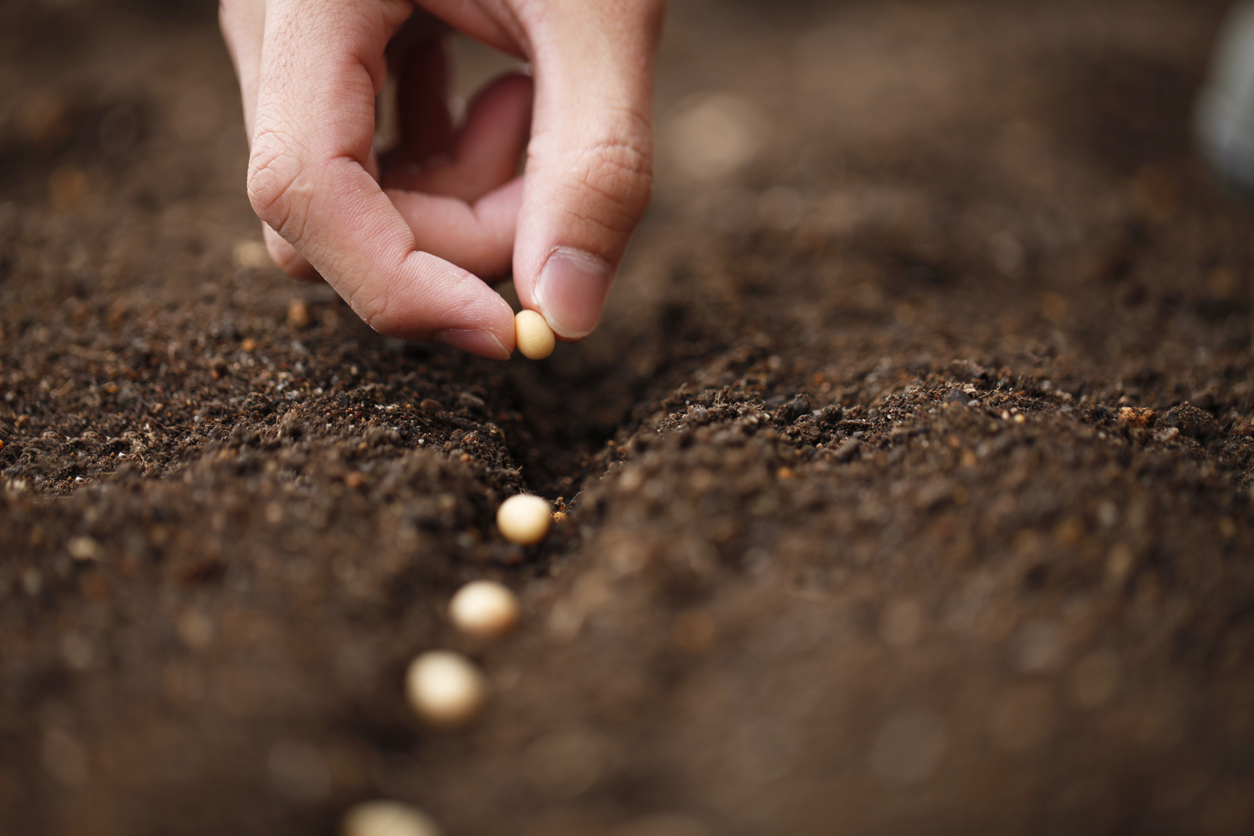Hundreds of Americans planted those alarmingly mysterious Chinese seeds. Others ate them.


A free daily email with the biggest news stories of the day – and the best features from TheWeek.com
You are now subscribed
Your newsletter sign-up was successful
The same rules apply to a package of mysterious seeds found in your mail as do to a bag of fries discovered in a parking lot: As tempting as it is, don't open it, and most certainly do not eat what's inside.
Unfortunately, dozens of Americans didn't follow those basic life instructions when they received unsolicited packets of seeds seemingly coming from China a few months ago. State governments were deluged with thousands of questions from people who'd gotten the seeds, and had no idea how to respond when some people said they'd eaten them, Vice reports.
Vice's Jason Koebler requested records regarding the seeds from every state's department of agriculture, as well as from the U.S. Department of Agriculture and some USDA labs. From those records, Koebler found "tens of thousands of Americans received what they perceived to be Chinese mystery seeds in July." Many of them reasonably "panicked," quickly asking their governments what they should do, he wrote.
The Week
Escape your echo chamber. Get the facts behind the news, plus analysis from multiple perspectives.

Sign up for The Week's Free Newsletters
From our morning news briefing to a weekly Good News Newsletter, get the best of The Week delivered directly to your inbox.
From our morning news briefing to a weekly Good News Newsletter, get the best of The Week delivered directly to your inbox.
Others maybe didn't panic enough. One woman in New Mexico called in to her state department of agriculture after reports of the mysterious seeds started circulating, and let it know that "like a dumbass, I planted them." "Everything that's in the garden where I planted them are having a hard time and are starting to die," she continued, asking for some advice. Officials told Vice they were overwhelmed with the number of calls, Facebook messages, and emails they'd gotten, and in several cases, had to figure out what to tell people who ate the seeds. Read more at Vice.
A free daily email with the biggest news stories of the day – and the best features from TheWeek.com
Kathryn is a graduate of Syracuse University, with degrees in magazine journalism and information technology, along with hours to earn another degree after working at SU's independent paper The Daily Orange. She's currently recovering from a horse addiction while living in New York City, and likes to share her extremely dry sense of humor on Twitter.
-
 Maxwell pleads 5th, offers Epstein answers for pardon
Maxwell pleads 5th, offers Epstein answers for pardonSpeed Read She offered to talk only if she first received a pardon from President Donald Trump
-
 Political cartoons for February 10
Political cartoons for February 10Cartoons Tuesday's political cartoons include halftime hate, the America First Games, and Cupid's woe
-
 Why is Prince William in Saudi Arabia?
Why is Prince William in Saudi Arabia?Today’s Big Question Government requested royal visit to boost trade and ties with Middle East powerhouse, but critics balk at kingdom’s human rights record
-
 Nobody seems surprised Wagner's Prigozhin died under suspicious circumstances
Nobody seems surprised Wagner's Prigozhin died under suspicious circumstancesSpeed Read
-
 Western mountain climbers allegedly left Pakistani porter to die on K2
Western mountain climbers allegedly left Pakistani porter to die on K2Speed Read
-
 'Circular saw blades' divide controversial Rio Grande buoys installed by Texas governor
'Circular saw blades' divide controversial Rio Grande buoys installed by Texas governorSpeed Read
-
 Los Angeles city workers stage 1-day walkout over labor conditions
Los Angeles city workers stage 1-day walkout over labor conditionsSpeed Read
-
 Mega Millions jackpot climbs to an estimated $1.55 billion
Mega Millions jackpot climbs to an estimated $1.55 billionSpeed Read
-
 Bangladesh dealing with worst dengue fever outbreak on record
Bangladesh dealing with worst dengue fever outbreak on recordSpeed Read
-
 Glacial outburst flooding in Juneau destroys homes
Glacial outburst flooding in Juneau destroys homesSpeed Read
-
 Scotland seeking 'monster hunters' to search for fabled Loch Ness creature
Scotland seeking 'monster hunters' to search for fabled Loch Ness creatureSpeed Read
